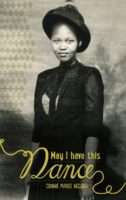In 1980, I took over presidency of the Albany Border and Ciskei YWCA. By this time my friend Mrs Gush was the General Secretary for the area. We worked together well as a team, and often travelled to national YWCA committee meetings.
YWCA members from all over the country were often given the opportunity to travel to other parts of the world to deliver essential items, study or learn about what other women were doing and to develop the skills of rural women. Mrs Gush once visited a YWCA in Kenya, where she learnt how to make mud stoves, cement water-tanks and toilets for toddlers.
One of the first things I did when I took over as the regional president was start a programme to deliver essential items like sanitary pads, soap and wound dressings to young people, especially women, in exile at a camp in Namibia. Mrs Gush and I once travelled there together.
Between 1978 and 1983, I also travelled to Lesotho quite often, sometimes on YWCA business and sometimes to attend political rallies. Dudu had a car by then. On a few occasions he took Andile and myself to Lesotho to listen to Chris Hani and Alfred Pat Nzo speak. The event organisers usually helped pay for attendees’ petrol. On such trips we usually took along toiletries and jerseys for the young exiles. A few times we even delivered education certificates to exiles from their families in Duncan Village so that they could apply to study further elsewhere. That was how things worked back then: we helped each other out.
The special branches of both South Africa and the homelands always took the opportunity to harass people coming home from such trips. Their women officers searched me at East London airport, looking for ANC documents that they thought I was bringing in to distribute. Of course, they were never lucky enough to find anything. We were not stupid enough to expose ourselves like this, when the trains were full of mine workers carrying banned literature in their big trunks as they crossed the country.
While the YWCA was never affiliated to any political party, it did provide a platform for political thought. I am proud to say that I was among those who spoke out and wanted to be heard. I believe that the strength of being a mother gave me – and others like me – the power to care, love and protect all human beings to the best of my ability.
Some parents became suspicious about the YWCA. They thought that we were recruiting their children to leave the country. We did not know much about Umkhonto we Sizwe then, but we had a common fear of the killings and the disappearance of our children. It made me sad, this sense of distrust, when everything we did was for the sake of all African people. Perhaps the Special Branch played a part in breaking down the confidence the community had in us.
By 1980, my children were young adults themselves. They had completed their schooling at rural boarding schools because it seemed to Sol and me that “broken” families were more common in urban areas. Tammie had studied business management and was working at Albany Bakeries, and Nomhamha was a professional nurse at Cecilia Makiwane Hospital in Mdantsane.
Dudu was a teacher at Ikhwezi Higher Primary in Duncan Village and was very politically active. He had been arrested a number of times. In 1981 he was arrested on suspicion of bringing banned literature into the country from Lesotho and other areas. He was in prison over the first birthday of his firstborn son, so the celebration had to be postponed. The state could never prove it, though, and he was freed in the end.
Tura had started studying a Bachelor of Commerce at Fort Hare University but dropped out after being detained a number of times. He was the chairperson of the Duncan Village Youth Movement, which was a prominent player in the struggle in our area. He had been arrested in 1978 for distributing banned literature. He waited in jail for ten months before his case finally appeared before the court and he was proved innocent. Soon after his release, he was charged with inciting students to join the ANC at Blythswood High in 1964. The case was thrown out of court when the judge found out that Tura was only six years old at the time.
Andile had been arrested and detained on suspicion of building bombs and had been very badly treated by the Special Branch.
Every time one of my sons was arrested for their political involvement, I felt a terrible blend of fear for their safety and pride in their courage and sense of justice. I thought about them every day and prayed for their safe return. Fortunately, for those of us who were part of the struggle, the belief that freedom in South Africa could be a reality in our lifetimes made us strong.
At about this time Dudu, Tura and I became involved with forming the Duncan Village Residents’ Association and its branches. The association was to be part of the United Democratic Front, a coalition of civic, students’ and workers’ organisations.
Early in 1981, at the age of twenty-three, Andile went into exile. Not once did he give me any hint that he had been thinking about leaving the country. Young men were so committed to secrecy about the ANC in those days. I only found out about it when we were advised by our contacts in Lesotho that he had gone there and wasn’t coming home again. He was waiting for safe passage out of the country.
I was devastated that he hadn’t told us his plans, but relieved that he would be out of harm’s way. Nomhamha visited Lesotho to take him some of his belongings. He left the country soon after.


